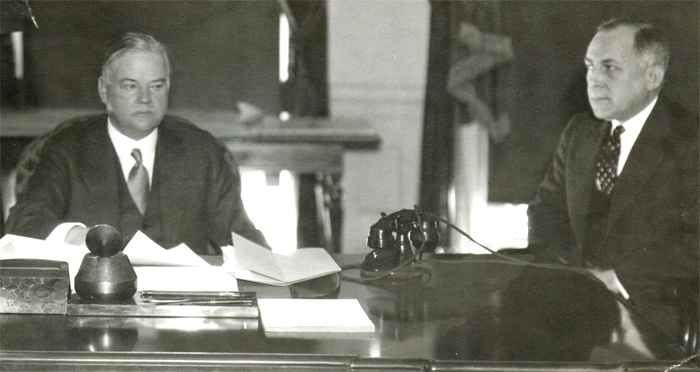
The Great Depression was one of the darkest periods in American history, and there are few figures from that era more maligned than Herbert Hoover. As President during the early years of the crisis, Hoover has been blamed for everything from failing to take action to worsening economic conditions. But is this criticism fair? What should have been done differently? And what was the lasting impact of his presidency.
Causes of the Great Depression
The Great Depression was caused by a number of factors, including the stock market crash of 1929, the collapse of the agricultural sector, and the failure of the banking system. These factors led to a decrease in consumer spending, which resulted in a decrease in production and an increase in unemployment.
Herbert Hoover’s policies during the Great Depression exacerbated the economic downturn. Hoover implemented a series of tax increases that reduced consumer spending and increased unemployment. He also signed into law the Smoot-Hawley Tariff, which raised taxes on imported goods and led to a decline in international trade. These policies contributed to the worsening of the Great Depression.
Hoover’s Actions During the Great Depression
Herbert Hoover’s policies during the Great Depression have been heavily criticized by economists and historians. Hoover was a staunch believer in laissez-faire capitalism and he did not believe that the government should intervene in the economy, even in times of crisis. This hands-off approach led to widespread suffering during the Great Depression, as millions of Americans lost their jobs, homes, and savings.
Hoover’s belief that charities and private businesses would step in to help those in need also proved to be misplaced. Although there were some charitable organizations that did provide some relief, they could not possibly meet the needs of all those who were struggling. The federal government’s inaction left many Americans desperate and hopeless.
It is clear that Hoover’s policies were a failure. Had he taken a different approach, such as implementing Keynesian economics or increasing government spending on public works projects, the Great Depression may not have been as severe or as long-lasting as it was.
What Should Have Been Done Instead?
Many economists believe that the key to addressing the Great Depression was increasing government spending. This would have helped to jumpstart the economy and create jobs. This is something that would ultimately lead the country out of the depression many years later.
Hoover did increase government spending during his time in office, but many believe that it was not enough. He should have increased spending even more, especially on public works projects.In addition, Hoover should have implemented policies to help reduce poverty and inequality. The Great Depression exacerbated these problems, and they need to be addressed in order to prevent future economic crises.
Finally, Hoover should have done more to regulate the financial system. The stock market crash of 1929 was a major factor in causing the Great Depression, and better regulation could have prevented it. In the very least, there could have been measures put in place to limit damage and avoid a total collapse.
Examining Potential Solutions to What Could Have Been Done Differently
When examining Herbert Hoover’s mistakes during the Great Depression, there are a few potential solutions that come to mind.
First, Hoover could have been more proactive in addressing the problem of banks failing. He was aware of the issue early on, but did not take decisive action until it was too late. By the time he did act, many people had already lost their life savings.
Second, Hoover could have implemented more aggressive policies to stimulate the economy. The measures he did take, such as increasing taxes and cutting government spending, only made the situation worse.
Third, Hoover could have done more to help the millions of Americans who were struggling to find work. He did establish some programs to provide relief, but they were not nearly enough to make a dent in the unemployment rate.
Ultimately, there is no way to know for sure what would have happened if Hoover had made different choices. However, it is clear that his actions (or lack thereof) made the Great Depression worse than it otherwise might have been.
President Herbert Hoover’s actions during the Great Depression were not enough to lift the United States out of the economic crisis. He could have done more to address issues such as unemployment, business closures, and widespread poverty. In hindsight, it is clear that he should have implemented a comprehensive recovery plan that included measures like creating jobs programs, reducing taxes for businesses and individuals, and addressing structural weaknesses in the economy. With some decisive steps taken by Hoover at the time, perhaps we wouldn’t be talking about this era with such sorrow today.